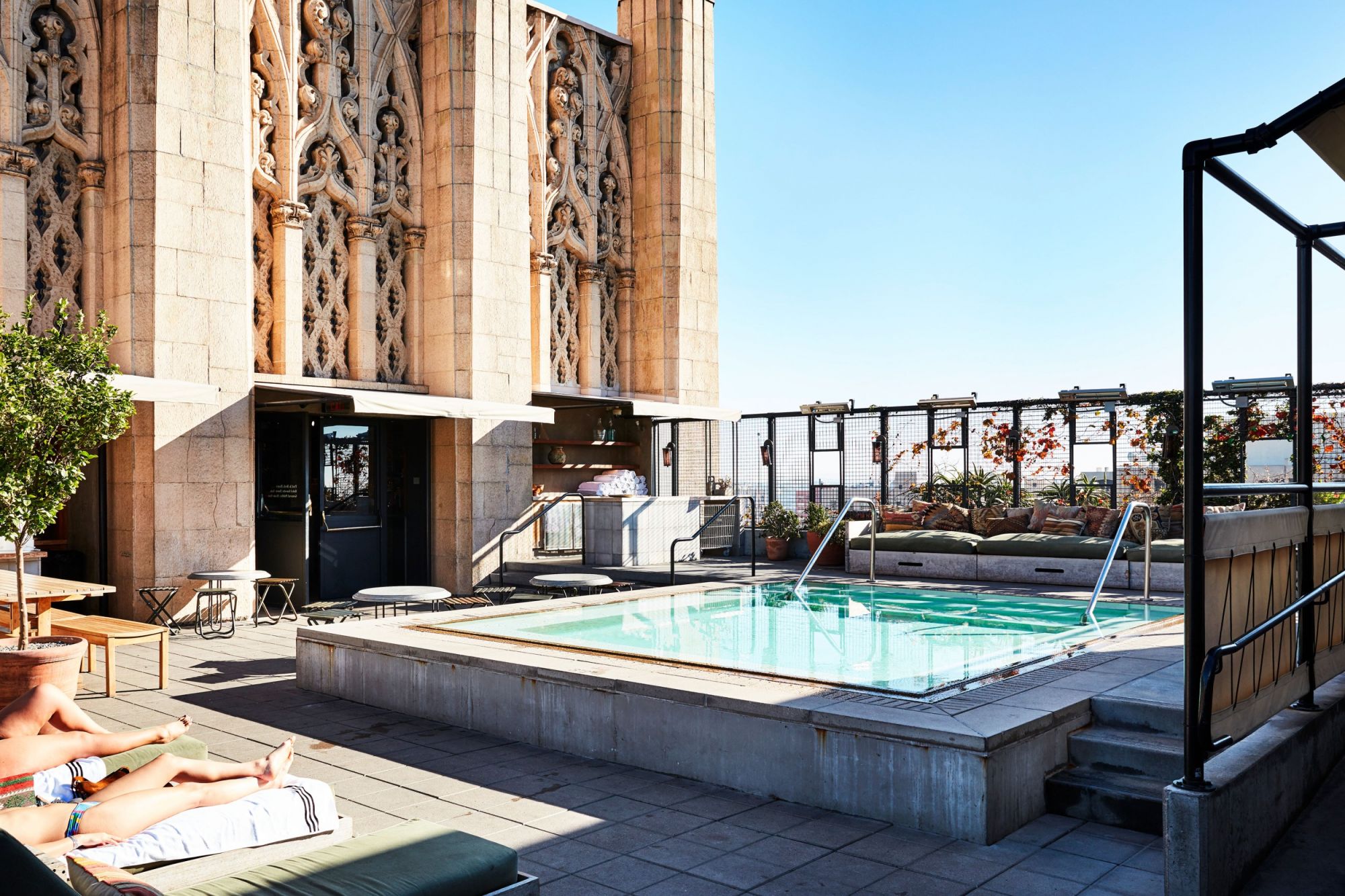Here's How Ace Hotels Pioneered the 'Boutique Hotel' Category The non-traditional hotel industry has exploded since the first Ace Hotel opened 20 years ago.

When the original Ace Hotel debuted in Seattle in 1999, its founders had a unique goal. Rather than open a typical hotel, they wanted to create a space that approximated the experience of staying with hip, in-the-know locals. The concept resonated with travelers, and now, 20 years later, there are nine Ace Hotels spread throughout the country, with the first international property slated to open in Kyoto, Japan early next year. "We started hoping to build an inviting, comfortable space for our friends to stay," says Kelly Sawdon, chief brand officer and partner at Ace Hotel Group, "and we're humbled that it's resonated with others."
Their recipe generally involves taking an old building in an emerging location, working within a small budget that requires innovative thinking, and employing a design aesthetic that mixes comfort with a bohemian vibe. Though it's a tricky combination to pull off, many are trying. (More than 20 new lifetsyle hotel brands have emerged in the last few years alone.) Between these upstarts -- and the rise of Airbnb and its ilk -- competition is fierce indeed.
Entrepreneur spoke with Sawdon to learn about the unique challenges of running boutique hotels, how they decide where to open new properties, and how Ace Hotel Group is able to stay one step ahead.

How is the guest experience at a boutique hotel different?
Traditional hotels typically offer guests a place to sleep, while a lifestyle hotel caters to guests who are looking for a dynamic space that offers layers of experience. At Ace, we think of our hotels as a platform for others to animate; we throw open our doors and let the city in. At the heart of all our projects is the presence of humanness -- the hand touch, closely connected to the hyper-local community, a palpable heartbeat -- and it comes from embracing the spirit and energy of each building and city, and collaborating with artists and designers who bring it to life.
Within the world of boutique hotels, how does Ace differentiate itself?
Ace is built on creative collaboration. The majority of our core team doesn't come from a hospitality background, but is comprised of artists, musicians and mavericks from all walks of life, with a shared hunger for making things happen and bringing people together. It turned out hotels were a perfect vehicle for our love of creative collaboration, vibrant social spaces and idiosyncratic design. Each Ace property has its own unique personality under the ethos of radical inclusivity.
What are the unique challenges a boutique hotel faces?
We never use a template. We never look to past projects or other successful models as a blueprint for a new property. Luckily, this challenge is something we wholly embrace. With every new Ace, we renew our focus and energies and deep dive into research, seeking unexpected points of inspiration. While we do have two decades worth of experience, we are constantly learning, growing and evolving; it helps keep the brand elastic and exciting while feeding our team's drive to move ever forward.
Related: 3 Reasons Why I Gladly Welcome Competition
How do you decide where to open new properties?
It's a little bit intuition, research and luck. A friend will mention a neighborhood they love, or someone will bring up a neglected building with incredible bones, like how we found Ace Hotel Downtown Los Angeles. In the end, we have to love the place. And we love neighborhoods that have strong, idiosyncratic characteristics, whose identities are a juxtaposition of historic and future-forward, and who we feel have enormous potential.
You're about to open your first hotel in Asia: Ace Hotel Kyoto. What new challenges does that create?
Lifestyle hotels aren't as common in Japan, and we're excited to build a cultural hub for travelers and locals that celebrate the city while acting as a holistic throughway to Kyoto and its abundance of food, art, architecture and nature. It's been exciting to meld the mutual appreciation that the U.S. and Japan have for each other in design, food and programming, showcasing the hyperlocal community in a space that still very much feels like Ace.
Related: 6 Tips for Starting a Business That's an Instant Hit With Locals
There's a lot more competition in the hospitality space now than when the first Ace opened 20 years ago. How do you stay relevant?
We don't look to what others are doing, but follow the paths we design. We have a north star that we follow, and we believe in soulfulness, curiosity, following our gut and the ineffable quality of kindness. We also work with a disparate group of collaborators and partners who bring in their own vision and expertise. Working with others generates an influx of fresh ideas and conversations, pushing culture forward with a focused momentum built on creative inclusion and collaboration.










